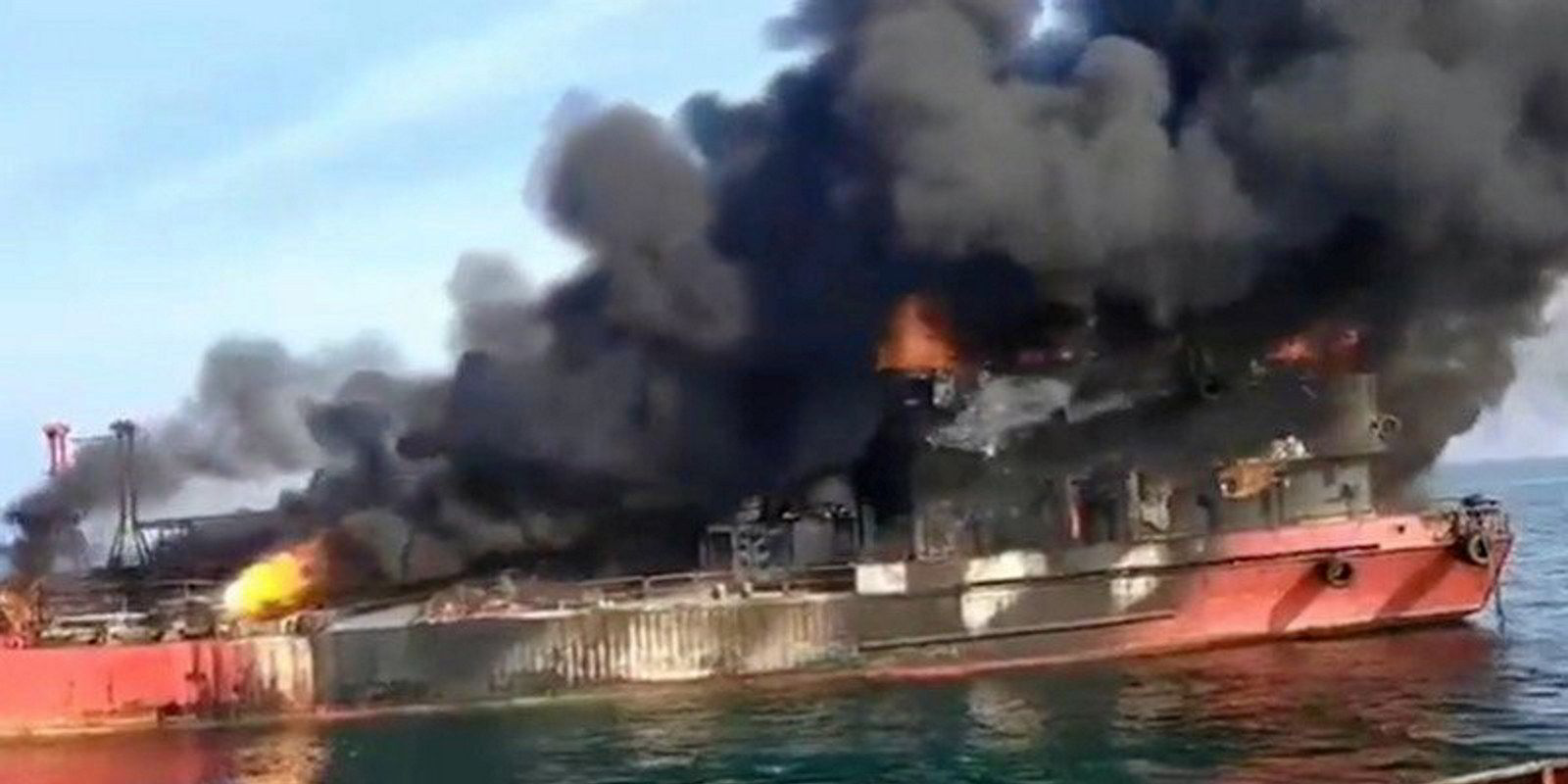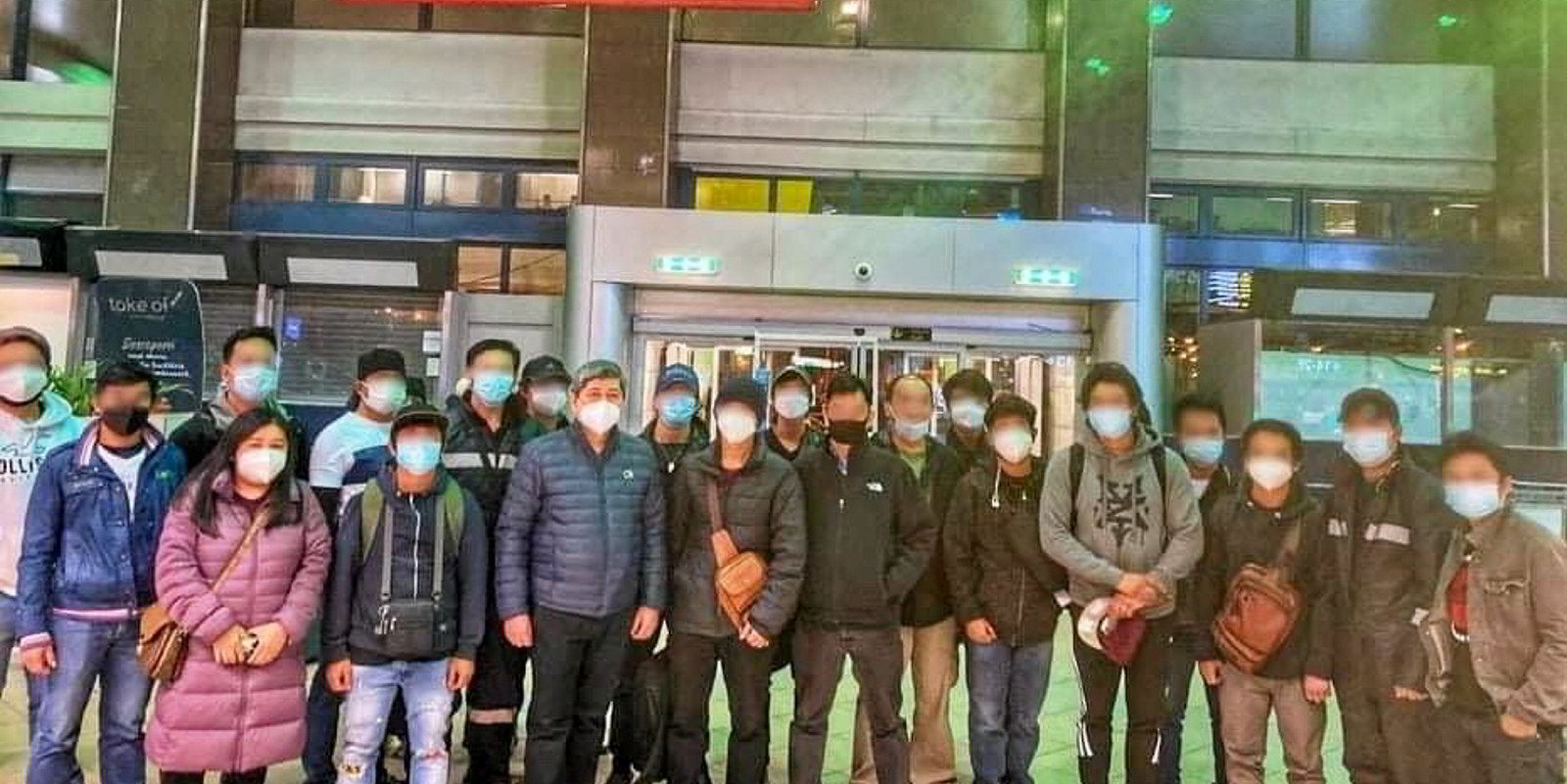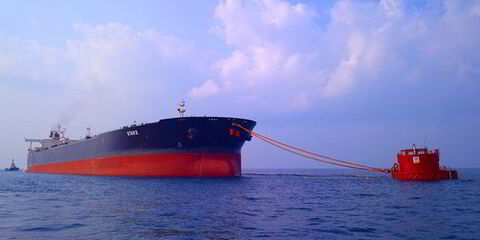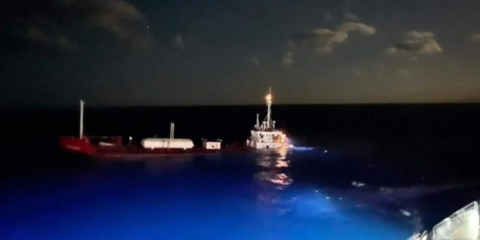International shipowners are looking for creative approaches to get their seafarers out of harm’s way in the maritime war zone as the Russian attack on Ukraine continues by land and sea.
One group of Greek and other shipowners has turned to the Panama Maritime Authority’s representative in the south-western port of Odessa to replace international crews with Ukrainian seafarers and avoid the prospect of abandoned vessels.
Another group of owners and managers including Hong Kong’s Fleet Management has approached embassies and local port authorities.
Common to all owners caught in Ukraine is the challenge of avoiding abandoned vessels. So far no corridor for safe evacuation has been negotiated with Russia, whose warships are blockading Odessa and other Ukrainian ports.
TradeWinds has previously reported on ships left crewless after the emergency evacuation of hundreds of Filipino seafarers. But the risk of environmental damage grows with the number of such unattended vessels.
Ukrainian authorities have identified about 100 foreign-flag vessels under blockade in their ports. TradeWinds has previously reported on 40 larger ships of more than 20,000 dwt caught by the hostilities.
Greek owners that recently replaced their crews with locals include Seastar Chartering with its 32,600-dwt open-hatch handysize bulker Polarstar (built 2006) at Odessa; and Star Bulk Carriers, whose 82,200-dwt Star Laura (built 2006) is at nearby Chernomorsk, said maritime lawyer Evgeniy Sukachev.
Some 40 seafarers from Myanmar, the Philippines and India have already been replaced with Ukrainian nationals. Sukachev said the owner of a third ship declined to identify itself, as did the local manning agency that is supplying the Ukrainian mariners.
Getting crew out has been comparatively easy so far in Odessa, but Sukachev told TradeWinds he is also working on the more challenging job of swapping crews in the embattled ports of Mykolaiv (Nikolayev) and Kherson.
“Foreign seafarers can leave Ukraine with no problem, but there are questions involving the safety of seafarers departing from Kherson,” he said.
Sukachev is Panama’s man in Odessa, and his Black Sea Law Co represents a number of Greek and other owners that frequently call at Odessa, and their P&I clubs.
He has received instructions from owners of five or six ships at Kherson and Mykolaiv and their P&I clubs.
“A lot of shipowners are trying to exchange foreign crew for Ukrainian seafarers in the ports where such actions are possible,” Sukachev said. “We are communicating with various consulates.”
Earlier, two ships technically managed by Hong Kong’s Fleet Management and commercially by Norway’s Hansa Tankers evacuated crews with the help of the Indian embassy in Kyiv and local port authorities.

“This incredible feat would not have been possible without the support of the Indian embassy in Ukraine, who spearheaded the evacuation effort,” Fleet Management managing director Kishore Rajvanshy told TradeWinds.
The 20,000-dwt Spring Ploeg (built 2017) and 19,900-dwt TRF Miami (built 2008), both at Mykolaiv, were evacuated of crew last week.
Hansa Tankers chief executive Hans Solberg told TradeWinds that Fleet’s Odessa manning office has placed local captains and chief engineers on the ships, but the hunt for full crews is complicated by Ukraine’s defence needs.
“Crew members have to be over 60 years old, because younger men are called up to fight in the military,” he said.(Copyright)






